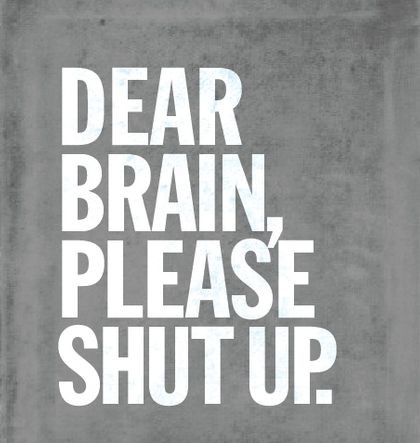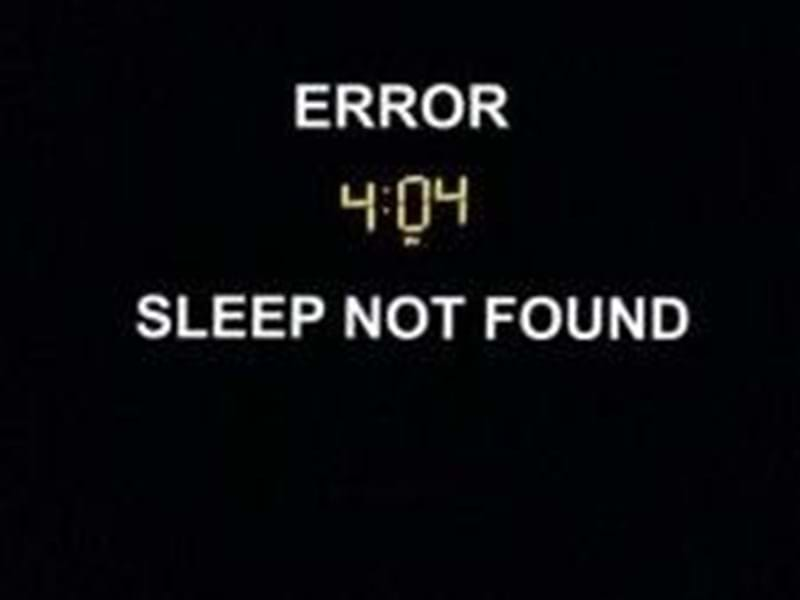Insomnia Cures, tried and tested.
- Hazel Butterfield
- 08 December 2017
Hello darkness my old friend...
There are slightly conflicting ideas of the ‘correct’ amount of sleep required to be able to function normally, but generally it’s in between 7-9 hours. Those with insomnia can average 2-3. However, the lack of sleep is not the main issue, it’s the repercussions of what goes through your mind in the dark hours where desperation and irrationality seep in. So I decided to utilise my ongoing predicament for some good by researching and trialling the supposed most effective cures and hopefully help someone else at the same time.
So for a my experiment I tried all methods twice at different times to get a fair assessment. I only tried such methods on non-drinking days and averaged out the results. It was like a proper controlled experiment and I was extremely motivated to get it right.
However, getting to sleep is not always the main hurdle, it’s staying asleep. For this, a cycle has to be broken. A sense of calm has to be established, a wondering mind halted and learn techniques to stop it in its tracks. Once the 4am monster calls, your thoughts need to be diverted from worry, make a list of mundane things to think about that aren’t too taxing and may bore you enough to fall back to sleep:
* What is the solution to your towel storage issue?
* What should you get your Auntie for her birthday?
* A good new reward system to get your kids to listen to you.
* What to wear a week next Thursday and so on...
Try not to engage in anything that involves electronics, turning the light on or any decent engagement of the brain.
Sleeping Tablets
Zopliclone or something similar that your doctor will prescribe do work, but they are a short term fix as they are potentially addictive. The more you use them the more you may become immune or require more, not the best way forward or to only be used in dire emergencies. Kalms are rubbish, or so I thought for the first few times I took them, but if you use them in conjunction with a few other methods, they can at least help. They are not a method for a chronic case of insomnia, but will help once you have more of a handle on your situation and need a quick helping hand.
Yoga
I understand that insomnia also results in a lack of motivation or the will to try new things via an intense lethargy. So although on the odd evening that I did manage to peel myself of the sofa and miraculously do a 45 min evening yoga session did work wonders for relaxing my mind and body, it did take a good week or so for me to find an evening where I felt the desire to do this, after feeding the kids, having an argument with them about their maths homework, remembering to not eat something too heavy, not needing to catch up on work, etc.
Blue Planet
I think David Attenborough is capable of many things and his Blue Planet series’ are exceptional. However, if you’re like me and you need something on in the background to get you to sleep that isn’t always too engaging, the visuals and his dulcet tones were incredibly relaxing and if they don’t send you off, then you are being productive and learning something. It’s a bit like tempting fate.
A Hot Lavendar Oil Bath
This was the first one that I tried, it was the easiest to kick off with keeping in mind how little motivation and energy lack of sleep can give you and yet I was surprised how effective it was. Let yourself relax and make sure it is the last thing you need to do before you go to bed. It is not an every night method but can serve a purpose if it isn’t done to death.
Meditation
Insomnia is often a result of an overactive mind due to something that is happening in your life and tuning out is easier said than done. Meditation takes practice and there are so many different varieties out on the web that focus on all sorts of issues for people with all levels of experience. You can start small with just 10 minute sessions at a time, they involve little effort and can be done anywhere. I did find the shorter sessions helpful to help me calm my thoughts and give me time to just breathe. The longer sessions made me too time conscious and anxious, but I guess that’s where the practice comes in!
Reflexology
A good reflexologist can work wonders, cure ailments, give you a sense of calm and work through your tensions. If your session is earlier in the day, it’s advised to not do anything to hectic or strenuous afterwards to fully benefit.

I understand that insomnia also results in a lack of motivation or the will to try new things via an intense lethargy. So although the odd evening that I did manage to peel myself of the sofa and miraculously do a 45 min evening yoga session did work wonders for relaxing my mind and body, it did take a good week or so for me to find an evening where I felt the desire to do this, after feeding the kids, having an argument with them about their maths homework, remembering to not eat something too heavy, not needing to catch up on work etc.
A few additional general tips to employ better sleep patterns or break the cycle are as follows:
- No electronics from the second you touch your bed. This is just a complete no-no, no matter which of the methods above you choose to adopt.
- Don’t eat too heavy a meal too close to bedtime as your digestive system will be working overtime. Cheese does cause crazy dreams, but food high in magnesium; legumes, whole grains, leafy green vegetables, almonds, cashews and bananas, etc help promote a good night sleep.
- Ditch the coffee from lunchtime, even if you struggle with the afternoon lull.
A few notes to consider are that I also think that just the notion of trying to fix a problem is cathartic enough to induce a better night sleep for the first few nights. This is not enough time to break a habit and effort is still required.
Good luck. X

